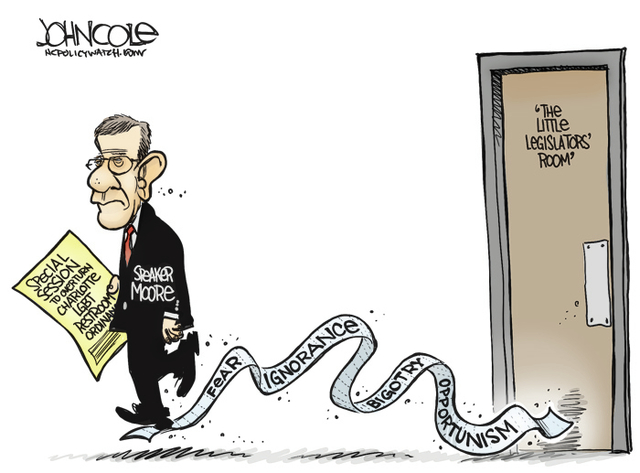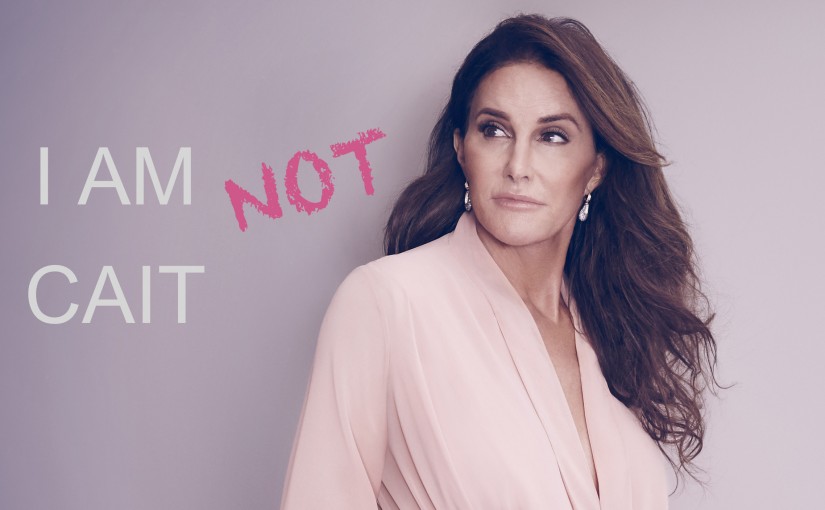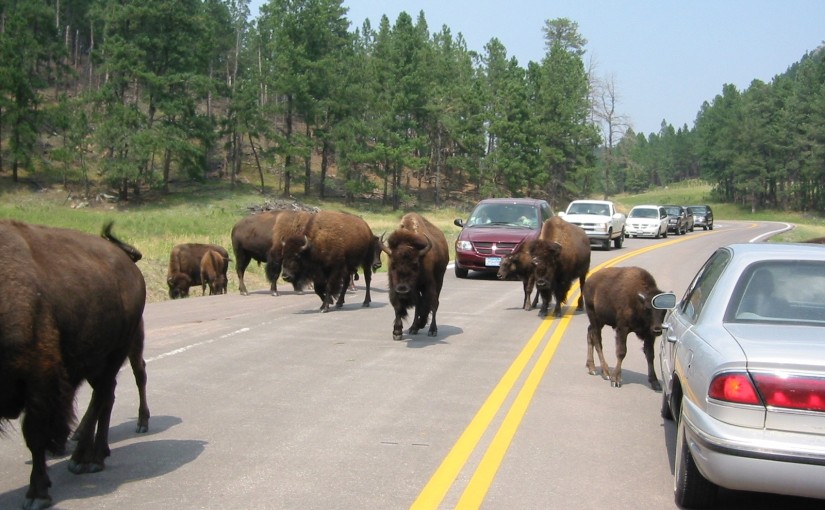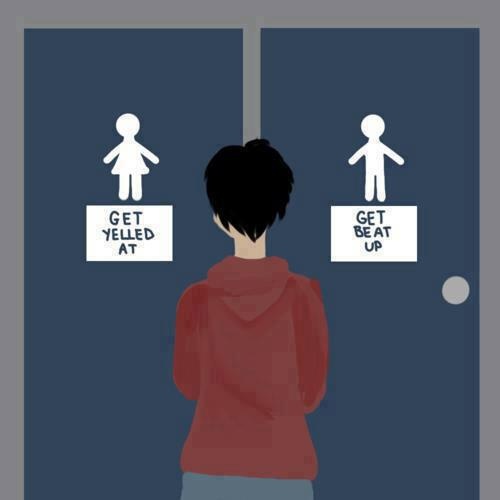What a difference a year makes. At this point last fall, I predicted that anti-transgender bills would continue to proliferate (as they did in 2015) and that transgender rights would remain a contentious issue in state and national politics. Instead, 2016 has become a referendum on economic and racial grievance as well as an increasingly nauseating contest of personalities. Yippee! We’re off of the hot seat, at least for the time being.
I’m sure that your political views, like mine are a conglomeration of a variety of opinions to which you give degrees of weight as you approach election day. Trans issues, as you might expect, are weighted rather strongly in my calculus. That you are reading this at all leads me to expect that you assign some importance to transgender politics, but what, if anything, does that mean in a practical sense as one enters the voting booth? In other words, what might it look like to “vote trans” in November if nothing else mattered to you?
Presidential
Four candidates remain for the Presidency. Reading “from left to right”, their positions on transgender issues are as follows:
Jill Stein–thoroughly on record in favor of LGBT rights, she also states explicitly that transgender rights fall under the heading of existing protections against discrimination based on sexual identity (similar to the declaration in the Minnesota Human Rights Act of 1993, which defines transgender identity as a sexual orientation). Some trans advocates chafe at this designation.1 Nevertheless, this approach works has resulted in durable human rights protection for trans people wherever it has been enacted. In other words, there is a semantic quibble, but no broad concern on policy direction.
Hillary Clinton–consistently supportive of transgender rights and inclusive of trans people within her circle of advisors. As Secretary of State she changed changed the internal policies to prevent anti-trans discrimination and re-wrote the procedures for issuance of a passport such that trans people do not need to prove a history of genital surgery prior to changing their gender marker.
Donald Trump–apparently personally disinterested in LGBT rights as a political issue. There is no evidence that he discriminates against LGBT employees in his business. His only public comment on trans rights during the current campaign indicated a belief that transgender people should be allowed to use the bathroom facilities with which they felt comfortable. Due to a reaction from his party, he subsequently walked this back, saying that he would “leave it up to the states.”
Despite managing to insult nearly everyone during this campaign, he has not made any truly inflammatory remarks against trans people. He somewhat famously said that if Caitlyn Jenner came to his hotel, she could use the women’s room. During primary season, his relatively easy-going attitude about the LGBT community stood in stark contrast to the nearly daily anti-trans pronouncements of his closest Republican rival, Ted Cruz.
That said, trans people have some cause to be wary of Trump’s candidacy, if not his personal opinions. First, trans people aren’t generally comfortable with dealing with transgender rights at the state level. During a recent business trip, my stopover was changed from Phoenix to Dallas/Ft Worth. On landing, I could not recollect whether using the women’s room was illegal, and I believed (with some cause) that the local culture in which I found myself was substantially more hostile than the Land of 10,000 Lakes. When, in the past, we have left civil rights up to the states, the end result has tended to look like a historical re-enactment of the Confederate succession.
Second, Trump nominated Mike Pence to serve as VP. Pence was the pioneer of so-called “religious freedom laws” at the state level (as governor of Indiana) which were written in such a way as to open the door for sanctioned discrimination against LGBT people. True, he ended up walking back this stance after threats of a national boycott, but he established the template that North Carolina, Mississippi and others would subsequently follow. The media have tended to interpret the appointment of Pence steadiness to counterbalance Trump’s erratic nature. LGBT people see Pence as a dog whistle to culture warriors.
Third, Trump’s publish list of potential judicial appointments (which was lifted wholesale from a pre-existing RNC list), includes a number of justices who have already voiced opposition to gay and transgender rights. Whatever Trump’s personal tolerance toward LGBT people, he shows no reluctance whatsoever to throw us under the bus to appease his base.
Gary Johnson–supports LGBT rights in general, stating a libertarian desire to “keep government out of the bedroom.” Although he has not said much about transgender rights, he was early, at least among conservatives, to support marriage equality.
In summary, a voter prioritizing candidate stances on transgender rights above all else would have most cause to trust Clinton, but might comfortably end up backing Johnson or Klein as well. Trump the man doesn’t seem to harbor any personal animus against trans people,2 but Trump the candidate has taken on associates and policies far more hostile to the advancement of LGBT rights in calculated moves on the pathway toward his election.
In the grand scheme of things, however, the trans-conscious voter probably would not sweat the Presidential election too much, if at all. The reason for this you have already guessed: the battle lines in the battle for transequality are drawn not so much in Washington DC as in the state houses, city councils and school boards.
As I mentioned, the wave of specifically anti-trans legislation (mainly bathroom bills) we saw last year seems to be losing a bit of energy. There are a few reasons for this. First and foremost, the corporate response to such legislation was swift and unambiguous. Companies will halt expansion or worse in states that pass bigoted laws. Transphobia, like homophobia is bad for business.
Second, in anything beyond the reddest of states, voter backlash is a real problem for those facing election. I have previously written about the 2012 Republican implosion in Minnesota after their bigoted crusade of 2010. More recently, Governor McCrory, the architect of North Carolina’s anti-trans bathroom law is poised to lose his re-election campaign, and there is concern within that state’s GOP that the backlash against McCrory might spill over into the Presidential election, essentially blocking Trump from any chance of victory. If McCrory loses, which seems increasingly likely, his political career is over.
Finally, state and federal courts are ruling against such laws. There is a growing sense that the issue of transgender equality will be resolved much in the same way that marriage equality was in 2015. Both pro- and anti-equality advocates suspect that a game-changing ruling is coming, making expenditure of political capital on what will likely prove to be temporary legislation does not make sense. Instead, each side is nationalizing the fight, hoping for a more favorable court. Meanwhile, trans-conscious voters can become more savvy voters by carefully listening for the dog whistles within the broader campaigns.
The most shrill is that religious freedom is under attack.3 Of what does this attack consist? If the “corrective” legislation is any indication, the threat is that it is becoming more difficult to discriminate against others with impunity. In addition to anti-trans proposals, there are growing movements to favor “European”4 and Christian immigration despite the fact that the most severely oppressed refugees are brown and Muslim. Churches still pay no taxes, enjoy broad protections to discriminate in their hiring/firing practices even when it violates federal law, and polls regularly demonstrate that Republicans would sooner vote for Democrats and vice versa far more readily than either would vote for an atheist.
Lately, an even louder chorus is booming: we must protect our children. Not from poverty, inadequate education, measles, air pollution, racism or school shootings. No–our children are threatened by transgender kids, who are willing to subject themselves to anxiety, social ostracism and daily abuse in hopes of seeing your kid partially naked before gym class. Be afraid. Be very afraid.
At the beginning of this post, I enjoined you into a thought experiment in which you would vote based on transgender issues alone. Let us put that thinking aside once again. I do not advocate one-issue voting. Nevertheless, if someone you know is transgender, or if trans people simply matter to you in general, elections are a time of great angst and greater opportunity. I would ask you simply to factor our concerns into your electoral calculus. Whatever your political assumptions, please do not leave your voting decisions until the afternoon of November 8. Read. Ask. Contact. Consider.
Vote.









